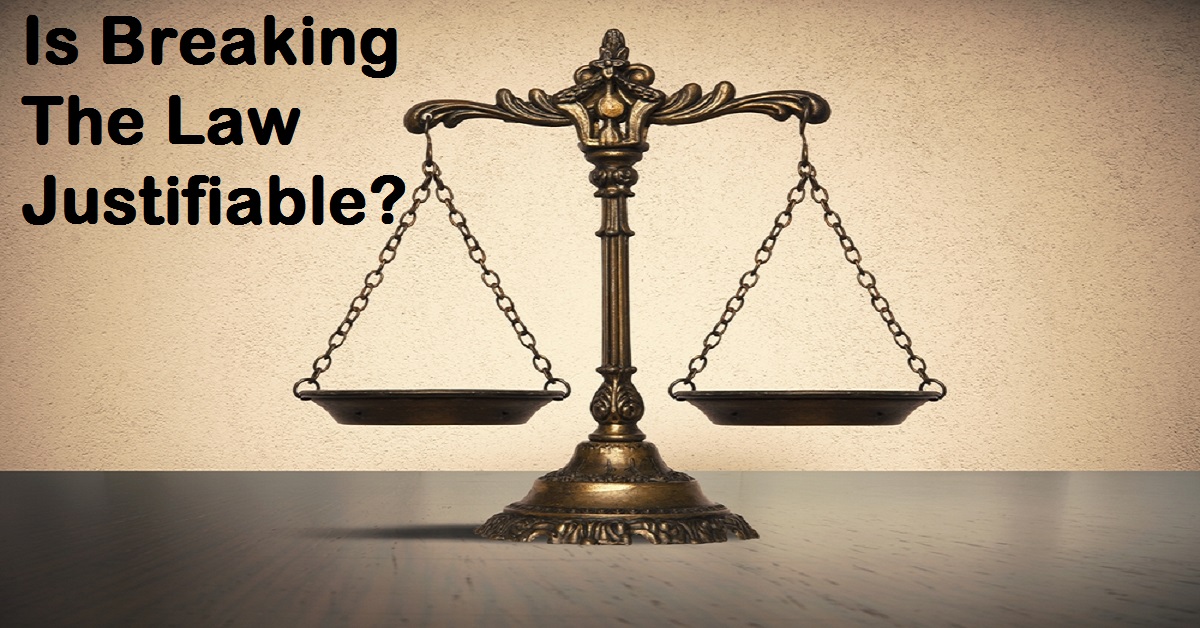
Should The Law Be Broken If You Believe The Law is Not Justifiable To You?
In 1922 after the Chauri Chaura violence, Mahatma Gandhi pleaded for him the highest penalty before the court, as he considered the violence the gravest crime under law. About a decade later he was also the one to break the salt law by evaporating water from the Arabian Sea.
Doesn’t he contradict himself in different situations? Yes, he did, in the first instances he abide by the law and in the second instance his action goes beyond the law. The Father of the Nation has justification for both of his actions.
This contradiction takes forward the discussion to the following questions-
Can a law be broken?
What are the appropriate instances when a law can be broken?
Can an individual justification be the basis for violating the law of land?
If the purpose of law is to serve people, the why there were violations of law?
The following discussion tried to find answers for the above questions starting from understanding law to establishing multiple relations involved.
LEGALITY VERSUS LEGITIMACY
The term law simply refers to a set of rules and regulations or list of offences and penalties which aims at bringing about social change or social control or both among others. Laws are made by those who are in power or authority, both being different. According to Max Weber, power is the chance of men to realise their will even against the resistance of others and authority refers to the power that is legitimate. For example power held in the hands of the elected government can be termed as authority.
The law made by those in power includes only the element of legality i.e. the quality of in accordance with the law, but the law made by those in authority will also include the element of legitimacy i.e. law following a reasonable, moral and ethical path. Legitimacy for a law comes from different factors such as free and fair elections, following due process of law, people’s right to get grievance redressal, participation in governance etc.
JUSTIFIABILITY OF A LAW
The difference between power and authority as well as legality and legitimacy makes two things obvious. First, people are more likely to find a law justifiable when it was made by a legitimate government and hence more likely act not to violate the law. Second people had no inevitable obligation to strictly follow a law that does not attached with legitimacy, this is because there is no reason for people to believe a law as justifiable when it was made by the government that is not backed by the people. For example, Taliban may force a law on the people, but these laws will never be justifiable for people and hence it is more prone to violations either intentionally or unintentionally.
But this argument doesn’t means that all laws passed by those in authority are always justifiable to people. There were many instances when those in authority made a law from a top down perspective without taking people’s opinion. These kinds of laws will be purely unjustifiable in the eyes of the relevant people.
An important aspect to note here is that laws are to be interpreted as justifiable or unjustifiable from the perspective of the most relevant stakeholders under the law. For orthodox people, laws against untouchability may be unjustifiable. But this does not in any way make a law unjustifiable. Here the most relevant stakeholders are the deprived castes undergoing the exploitation. In this case the law should not be broken even when it is unjustifiable in the eyes of the orthodox section.
INTENTIONAL AND UNINTENTIONAL VIOLATIONS OF LAW
People violate a law not just as a choice before them but sometimes also as a result of lack of choice. A classic example for this will be a poor man/woman stealing food to overcome his hunger. Here he/she does this as a result of lack of choice. This violation of law by the poor person is unintentional. So here the law has automatically become unjustifiable for the poor person even without his opinion. This is because the poor person’s position in this society is such that he/she had not been fulfilled with the pre-requisites needed for accepting a law as justifiable. Had the poor person provided with work and reasonable salary, he would not have stolen the food.
When people violate a law by choice (intentional), this emerges from three reasons – First people violates law when the law is not justifiable to them. Second people violate a law when they have no avenues to proceed against the law. Third when people deliberately violate a law despite its justifiability.
In the first case people violates a law for the reason that either the law was made by illegitimate government as said before or the law is unjustifiable to them from the point of view of relevant stakeholders. Here the intentional violation of law cannot be termed as unacceptable because justifiability of a law always traces to legitimacy of the government. In the second case people’s violation are acceptable when they have no option of attaining grievance redressal, say approaching the court of law. But violating a law without any effort to use the available mechanism is not acceptable. In the third case the violation of laws is purely unacceptable, as here the person violating the law is very much aware about the justifiability of the law, but still violates the law just for reasons of his/her pleasure and irresponsibility.
Relating the above discussion to the Gandhi’s contradictory action will makes it clear that Gandhi’s action of abiding by the law as well as breaking the law was in sync with the then prevailing emotions and the unreasonableness of the laws. Gandhi denounced violence in any form and so he pleaded highest penalty for himself.
Breaking a law by itself does not become an unacceptable behaviour, as making of a law and the impact of a law depends on the legitimacy and justifiability of the law. A law can even enjoy the presumption of constitutionality only until the highest court of appeal declares it as void. This indicates that a law that passes the test of justifiability from the view of most relevant stakeholders puts the onus on the people not to violate the law.
By: Siva Shankar A
Write and Win: Participate in Creative writing Contest and win fabulous prizes.


